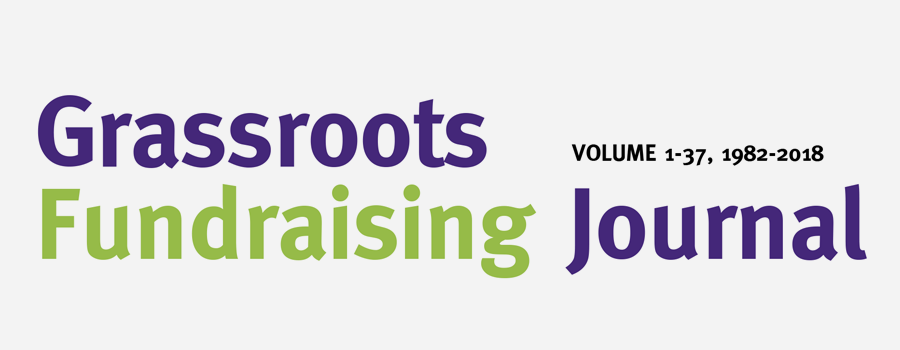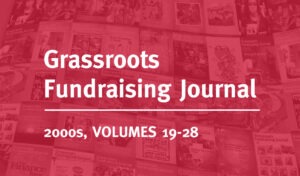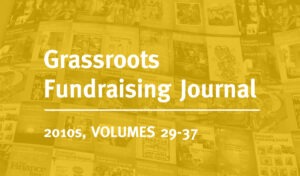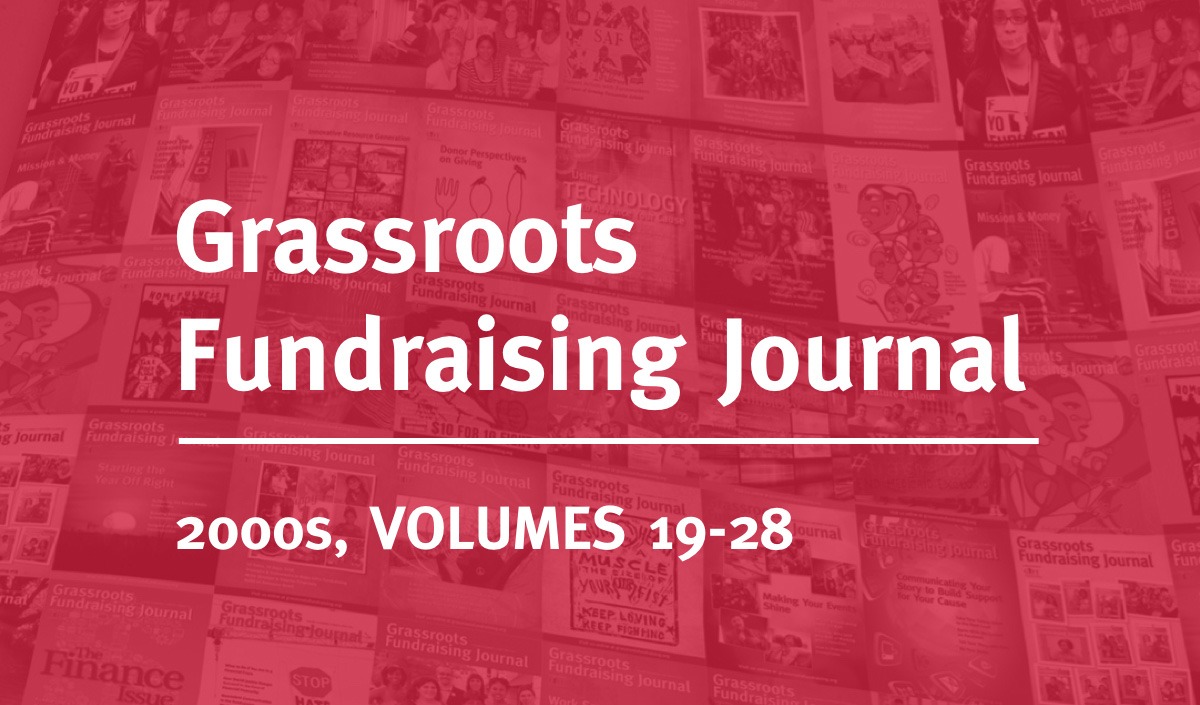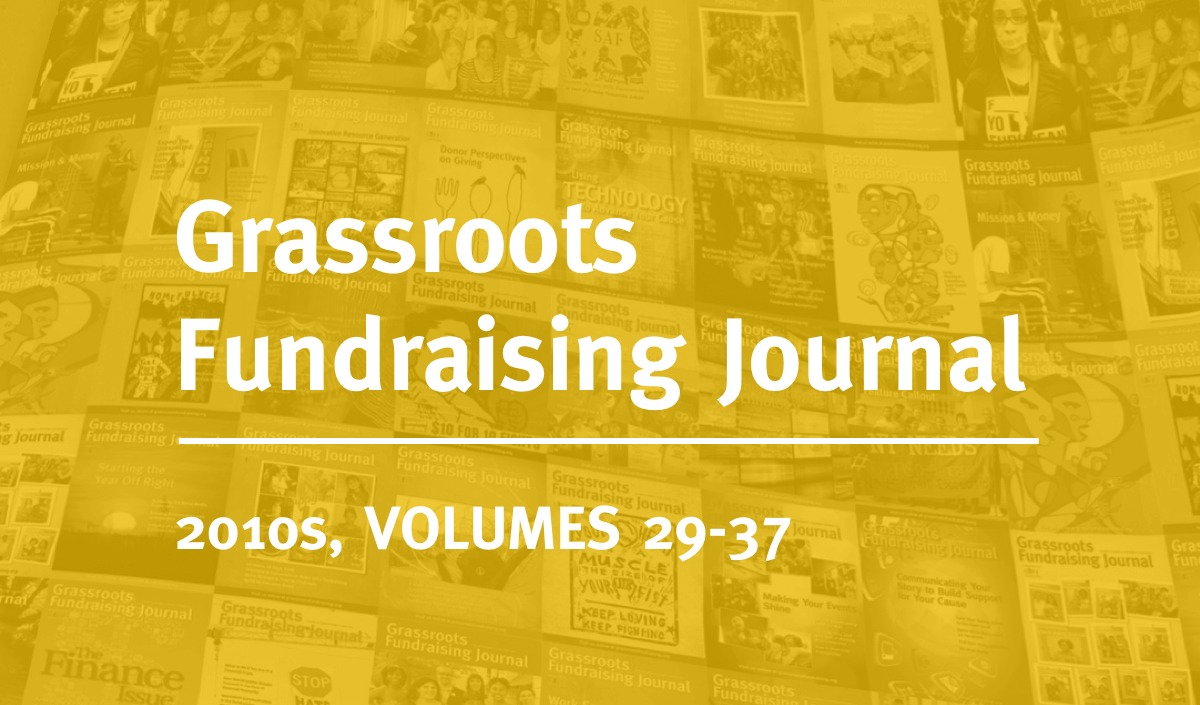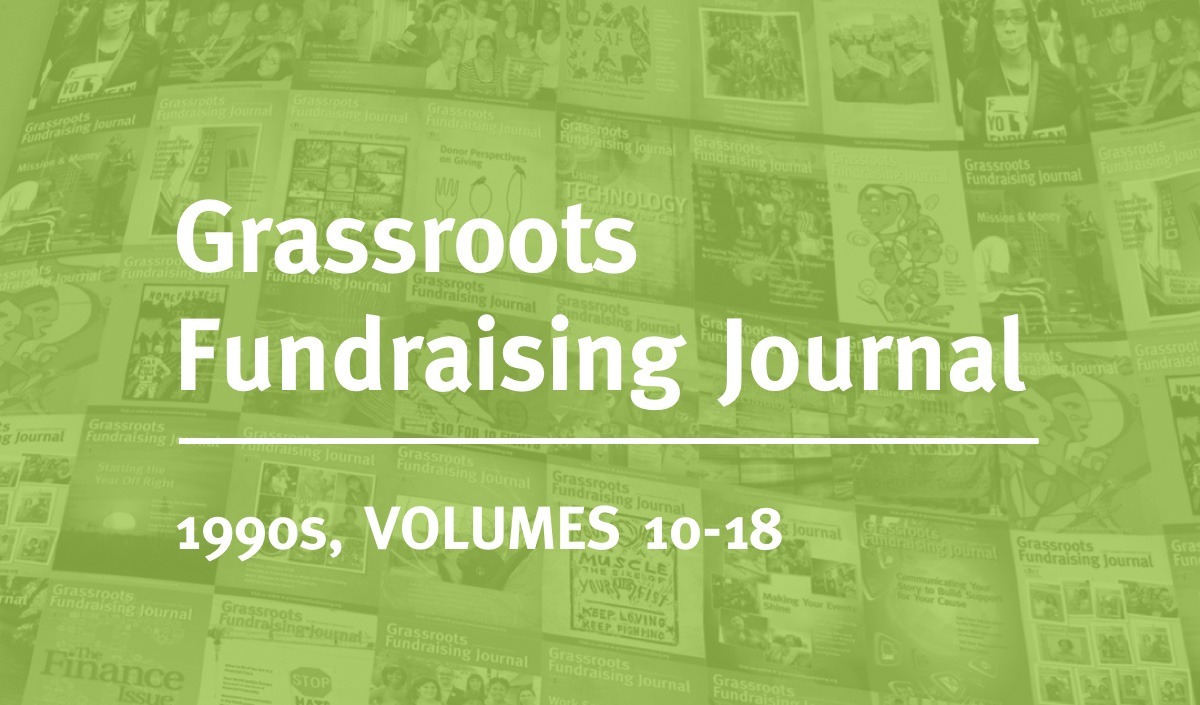
Editors’ note: This article, first published in print during June-1999, has been republished for Nonprofit Quarterly with minor updates.
There are times in the life of almost every group when a fundraising consultant can be helpful. These times are characterized by one or more of the following situations:
- You need someone with skill and knowledge who cares about the issues your organization is concerned with, but is far enough removed to have perspective on how your organization can improve its overall fundraising or some particular aspect of it.
- You need help deciding on a course of action: Can you really launch a capital campaign now? Would direct mail be a good strategy to explore?
- You need someone to carry out a time-limited task: run a special event, train the board in fundraising, plan a major gifts campaign, design a direct mail program, write a grant proposal.
- You need someone one day each week or month to help design a work plan, provide guidance and be available to answer questions for your bright, energetic but inexperienced fundraising staff.
- You are between staff and need someone temporarily to run the development function of your organization.
Consulting is characterized by being time-limited. You can hire a consultant for a few hours a week, a few days a month, or contract for a number of months. A consultant does not usually get involved in carrying out day-to-day fundraising operations. She or he is generally employed to give advice and guidance.
It is partially because of the latter that the idea of hiring a consultant carries a negative meaning for many people. The jokes, “A consultant borrows your watch to tell you the time,” or “free advice for a price,” are said only half in jest.
The problem is compounded by the sheer number of consultants working in the United States. There are sleazy and unreliable consultants in the fundraising profession, but a more common problem with consultants is that many have little knowledge of their professed subject.
Sometimes people call me to ask how they should go about becoming consultants. When I ask what experience they have had, they respond with a list of the books they have read and the trainings they have attended. They think consulting would be exciting because one travels a great deal and gets to know a wide variety of nonprofits. Further, consultants do not carry the ultimate responsibility for the fundraising success or failure of any organization.
What my inquirers fail to see, however, is that consultants carry a different level of responsibility: the advice we give must be correct. If implemented, it must work. Further, by being hands-off, consultants must trust others to carry out plans that the consultant designed. This means the plan must be communicated very clearly, and must be designed at the level of skills and resources the people carrying it out have, or have access to.
Consultants must know what can be learned by teaching, guiding and giving advice, and what can only be learned from experience. They must know what they can do for an organization, and what an organization can only do for itself. Here is a list of the kinds of activities fundraising consultants can and cannot do.
Consultants can:
- Train and motivate people in all aspects of fundraising.
- Create fundraising plans and help implement and evaluate those plans.
- Research prospective donors (individuals, corporations, foundations, religious institutions), and write proposals if needed.
- Set up a database for keeping track of donor information
- Conduct feasibility studies.
- Conduct direct mail campaigns, including acquiring lists, designing the package, tracking results, and sometimes producing thank-you notes.
- Help board members understand their responsibilities, and help organizations recruit and train good board members.
- Study and recommend structural changes in an organization to improve functioning and fundraising efficiency.
- Help hire fundraising staff, including writing job descriptions, advertising, and interviewing candidates.
- Organize special events.
- Set up any other fundraising strategy that an organization has decided to use.
- Manage mailing lists and donor information. This can include sending out pledge reminders, thank-you notes, and renewal letters. (Generally, it is not cost effective for small organizations to pay a consultant to do these tasks).
Fundraising consultants cannot:
- Actually solicit money from individuals, unless they go as part of a team with someone from the organization.
- Use their personal contacts to raise money. Consultants often know a great deal about wealthy givers in the community and, with discretion, can share that knowledge in prospect research. However, consultants do not go from job to job with their own list of prospects. Most of the time consultants do not actually raise money. If a consultant offers to do all your fundraising for you, run the other way. This is not an effective solution because, at best, it post-pones the necessity of getting the board, staff and volunteers involved in fundraising.
- Guarantee their work. There are no absolutes in fundraising. There is a body of fundraising knowledge (largely based on common sense) and there are many applications of this knowledge. No strategy will work every time for every group.
How to Choose a Consultant
Once you have decided that your particular situation may be helped by a consultant, what do you look for in that person?
Sign up for our free newsletters
Subscribe to NPQ's newsletters to have our top stories delivered directly to your inbox.
By signing up, you agree to our privacy policy and terms of use, and to receive messages from NPQ and our partners.
1. Track Record. Ask how much fundraising he or she has done, and with what success. Has the person worked with organizations similar to yours both in purpose and strategy, and in similar locales? A successful consultant for social change groups in Manhattan may be less useful for rural advocacy groups in North Dakota. Superb consultants for large institutions may not be as good with all-volunteer operations with budgets of less than $25,000. If questions of gender, sexual orientation, race, class, or disability are very important in your organization, ask the consultant what experience they have working on these issues as well, or with diverse groups of people.
2. References. If you don’t know the person by reputation, ask for the last three groups she or he has worked with. Then call those groups and ask about the consultant. Was the person helpful? Did the consultant listen well and really understand the situation? Would this group hire this consultant again? You can also check references, but you may get a more candid evaluation from non-reference groups.
3. Compatibility. If you envision a relationship with the consultant involving more than a one- or two-day training, you may wish to meet the person. This meeting, which should take about half an hour, should be free. You then get to see if you like the person and would feel good taking his or her advice. It sometimes happens that an excellent fundraising consultant is not the right person for your group because the personalities will not mesh. If the organization dislikes the consultant, both their advice and your money are wasted.
4. Confidence. Ask what the consultant will do for you, or what they recommend. Avoid asking for long written plans. Elaborate “work plans” or proposals are often standardized, with the name of your organization substituted for the name of the previous organization. You can ask for a resume, if you find that helpful. By the time of this meeting, you are not looking so much for proof of fundraising knowledge as for ability to put that knowledge across. Ask yourself, “Is this person believable?” “Does she or he convey confidence, enthusiasm and goodwill?” “Will the people who have to work with this person like him or her?”
5. Belief. Finally, the consultant must be able to articulate the mission of your organization and believe that your group should exist. The consultant does not have to be a donor to your group, and does not have to think that your group is the greatest idea since sliced bread, but he or she needs to care about what you stand for and want to help you out of conviction as well as needing a job. This is particularly important if your group is controversial or has a “troublemaker” image. Avoid consultants who advise you to “tone down” your message or broaden your goals “to make every-one feel included.” A fundraising consultant’s job is to help your group raise money — not to water down the group then help this newer, lightweight group raise money.
Paying Consultants
There are no standards or guidelines for how much to pay a consultant. A high price does not mean better performance or more accountability, but a price that is too good to be true probably is. By hiring a consultant, you are investing in the present so you will have more money in the future.
Most consultants charge by the day or by the hour, but some charge by the job. The daily rate is less per hour than the hourly rate, and several days is less per day than one day. Consultants also charge for all their expenses: hotels, meals, telephone, photocopy, and travel are the most common. You may be able to cut some of these costs by offering to house the consultant in someone’s home and providing their meals.
Establish clearly just what you are paying for. For example, you pay for the consultant’s time. But when does that time start? In some cases, the time starts when the consultant reaches the office of the client or the training site. Even if it takes a day to get there, they do not charge until they are there. Other consultants start charging the minute they leave their house or office. Find out if the consultant charges for phone calls, and at what rate.
If you are hiring a person for several days or months of work, build in evaluation points. For example, you might say, “At the end of one month, we will evaluate progress and decide whether or not to continue, or whether the plan needs to be modified.” This is best for the consultant also, who may need to re-estimate the time involved, or may have run into some unforeseen obstacles. It is important to have a written statement spelling out your understanding of the consultant’s role, fees and expenses, which you both sign. GFJ



